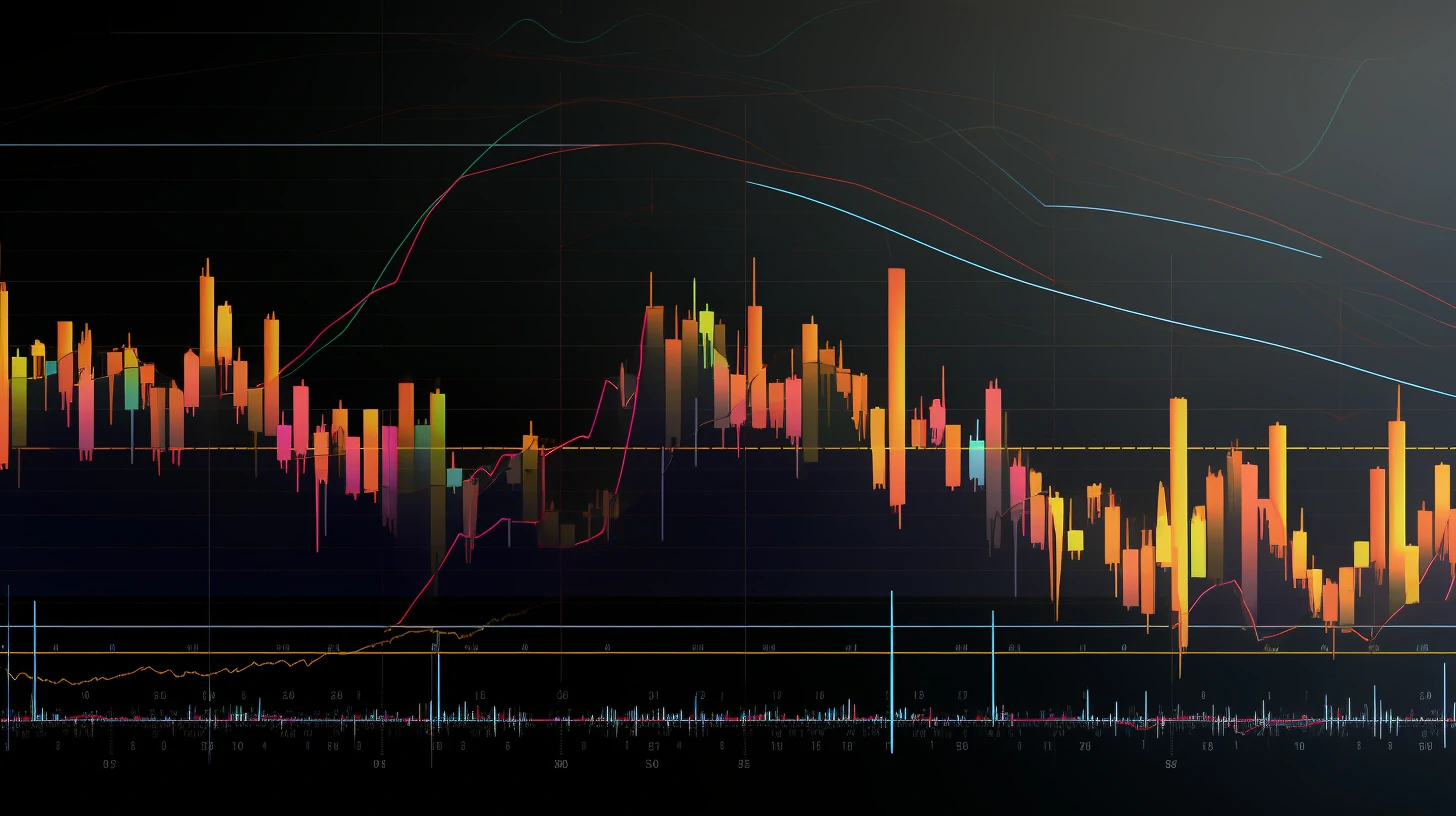Introduction: Unraveling the Power of Event-Driven Trading
Event-driven trading, a dynamic concept in the financial world, harnesses the potential of market events to create profitable trading opportunities. Simply put, it’s a strategy that utilizes significant occurrences such as corporate announcements, economic data, or geopolitical events to drive trading decisions. By doing so, traders aim to capitalize on market inefficiencies that these events may introduce.
In today’s interconnected world, the importance of event-driven trading cannot be overstated. Unlike traditional forms of trading, event-driven trading strategies offer unique advantages. They have the potential to generate high returns, particularly when markets are volatile. Additionally, these strategies can act as a hedge, potentially safeguarding your portfolio when the market takes an unexpected turn.
The arena of modern finance is an evolving landscape, heavily influenced by news and corporate events. In such a setting, event-driven trading strategies can make a significant impact. They can provide you with the edge needed to stay ahead in this competitive environment.
To conclude, event-driven trading strategies form a vital part of the contemporary financial world. They can create lucrative opportunities by leveraging market events, offering the potential for high returns. With this understanding, we shall delve deeper into the dynamics of event-driven trading in the sections to follow.
Delving Deeper: The Essence of Event-Driven Trading
Aiming to untangle the complexities of the financial market, event-driven trading strategies come into play. They revolve around the idea of profiting from temporary price discrepancies caused by significant market events. Often, such events include news announcements, policy changes, and corporate actions, leading to market reactions that these strategies aim to exploit.
Catalysts of Change: Events Triggering Trades
Typically, the heartbeat of event-driven trading lies in understanding and predicting how different events can stir the market. Often, such events include earnings reports, where companies reveal their financial performance for a particular period. An unexpectedly high or low report can drive the market, impacting the company’s stock price significantly.
Moreover, economic data releases, such as GDP or employment rate changes, can create ripples in the financial market. As this data can indicate the health of an economy, it can impact market sentiment, thus causing price movements.
Policy changes too can bring about significant market reactions. For instance, a shift in the Federal Reserve‘s interest rate policy can greatly influence the investment strategies of traders.
Mergers and acquisitions represent another type of event that can cause significant price changes. In these cases, the stocks of both the acquiring and target companies can experience price fluctuations, providing potential opportunities for traders.
Real-World Application: A Case Study
To further comprehend the application of event-driven trading strategies, let’s delve into a real-world example. Consider the merger of Company A and Company B. News of the impending merger hits the market. Given that Company B is the target, its stock price tends to rise as traders anticipate a premium on shares.
Traders utilizing event-driven trading strategies would seize this opportunity. They might purchase shares of Company B, anticipating a rise in its stock price due to the merger news.
As the merger completes, the traders could then sell their shares at a profit, demonstrating how such strategies can capitalize on market events.
In summary, event-driven trading strategies enable traders to exploit market opportunities arising from significant events. By staying alert to these occurrences and understanding their potential impacts, traders can make informed decisions, increasing the likelihood of successful trades. These strategies, therefore, become powerful tools in a trader’s arsenal, capable of steering profits in a dynamic market landscape.
The Role of News in Event-Driven Trading Strategies
In the vast universe of trading, news plays a pivotal role. Specifically, for event-driven trading strategies, news is the bedrock. It’s the fuel that drives market reactions, creates opportunities, and propels traders’ decisions.
Decoding Market Reactions through News
Traders rely heavily on news to forecast market movements. By closely monitoring news sources, traders can glean valuable insights into potential market changes. For example, a positive financial report from a tech company can signal potential stock price increases. On the other hand, unexpected political unrest might lead to a drop in certain stock values.
What’s crucial here is timing. For successful event-driven trading strategies, traders must react swiftly to news announcements. They need to analyze and predict the possible market response before it fully unfolds, providing a crucial edge in the competitive trading landscape.
Deciphering the Significance: Types of News
However, not all news carries the same weight. Event-driven traders need to distinguish between noise and genuinely market-moving news. Financial reports, economic indicators, policy changes, political events, and industry updates rank among the most impactful.
For instance, central bank policy changes can have a significant influence on financial markets, affecting currency values, bond prices, and interest rates. Similarly, a tech giant announcing a new product can lead to a surge in its stock price, offering a lucrative opportunity for traders.
A Real-World Example: Pharma Stocks and Vaccine Announcements

To illustrate, consider how pharmaceutical stocks respond to vaccine trial results. Let’s take the scenario of a biotech company announcing positive trial results for a highly anticipated vaccine. Such news can trigger a bullish trend for the company’s stock, attracting investors and traders.
Event-driven traders, keeping a close eye on such announcements, could leverage this opportunity. Buying the stock shortly after the announcement and then selling after the price increases demonstrates a common application of event-driven trading strategies.
In conclusion, news is instrumental in shaping event-driven trading strategies. By accurately interpreting news and forecasting market reactions, traders can seize lucrative opportunities. Hence, staying updated, reacting swiftly, and distinguishing between trivial and significant news becomes paramount in event-driven trading.
Corporate Events: A Catalyst for Event-Driven Trading Strategies
In the world of event-driven trading, corporate events form an essential piece of the puzzle. Ranging from mergers and acquisitions to earnings announcements, these events often trigger significant price movements, providing fertile ground for event-driven trading strategies.
Decoding Corporate Events and Their Impact on Stock Prices
Corporate events can have a profound impact on a company’s stock price. Mergers and acquisitions, for instance, often lead to significant stock price fluctuations. Upon the announcement of a merger, the target company’s stock price typically rises, reflecting the premium that the acquiring company is likely to pay.
Similarly, earnings announcements can also move the market. Companies regularly report their earnings for the previous quarter, and these figures directly impact the stock price. A positive earnings surprise can lead to an upward trend, while a negative report may trigger a downward movement.
Leveraging Corporate Events in Event-Driven Trading
Event-driven traders closely monitor these events to identify trading opportunities. They analyze the potential effects of these events on stock prices and make their moves accordingly. For instance, in anticipation of a positive earnings report, traders may buy the company’s stock beforehand, hoping to sell it at a higher price post-announcement.
Case Study: A Corporate Event’s Impact on Stock Prices
To illustrate, let’s consider the case of a tech company, TechCo, announcing a partnership with a major automobile manufacturer. This partnership aims to develop autonomous vehicles, a lucrative field in today’s market. Upon the announcement, TechCo’s stock price experiences a significant surge.
Event-driven traders, who had been monitoring TechCo closely, seize this opportunity. Buying the stock at the announcement and selling it at a higher price post-announcement, these traders exemplify the application of event-driven trading strategies.
In essence, corporate events significantly impact stock prices, creating a myriad of opportunities for traders. Understanding and leveraging these events is integral to successful event-driven trading strategies. Consequently, staying abreast of major corporate events and their potential impacts can provide traders with an invaluable edge in today’s dynamic market.
Crafting Success: Building Effective Event-Driven Trading Strategies
In the dynamic environment of trading, a robust and well-thought-out strategy is crucial. Without a solid plan, you’re essentially venturing into a battlefield unarmed. So, before diving headfirst into event-driven trading, developing a comprehensive strategy is essential.
The Necessity of a Trading Strategy
Think of a trading strategy as a roadmap. It provides clear directions, helps manage risks, and steers you towards your trading goals. By incorporating market trends, news, and corporate events, this roadmap can effectively guide your event-driven trading decisions. It allows you to react swiftly and confidently to market movements, increasing your potential for profitable trades.
Incorporating Market Trends, News, and Corporate Events
Your trading strategy should account for various market factors. Stay updated on market trends that can impact your trades. Monitor the news closely, particularly those related to the markets and sectors you’re trading in. Pay attention to corporate events, as they often have significant impacts on stock prices.
Steps to Building an Event-Driven Trading Strategy
Here’s a simplified process for creating an effective event-driven trading strategy:
- Identify the market and sectors of interest: Narrow down the markets and sectors you wish to trade in based on your interest, knowledge, and comfort level.
- Monitor news and events: Keep an eye on relevant news and major events in these markets and sectors. Utilize reliable news sources and consider using news alert services.
- Analyze impact: Try to predict how these news or events could affect the market. Use historical data and market analysis to guide your predictions.
- Plan your trades: Based on your analysis, decide when and what to trade. Determine your entry and exit points.
- Risk Management: Ensure you have a risk management strategy in place. Set stop losses and decide the maximum amount you’re willing to risk on each trade.
- Evaluate and adjust: Regularly review your strategy. If it’s not yielding the expected results, don’t hesitate to make adjustments.
By following these steps, you can develop a well-rounded event-driven trading strategy. However, remember that every trader’s journey is unique. Your strategy should suit your individual trading style, risk tolerance, and financial goals. Hence, while these steps provide a foundation, it’s essential to tailor your event-driven trading strategies to fit your specific needs.
Navigating Uncertainties: Risks and Challenges in Event-Driven Trading Strategies
Like any trading approach, event-driven trading strategies come with their share of risks and challenges. It’s not a guaranteed path to profitability, and traders must navigate various obstacles to achieve success.
Understanding the Risks in Event-Driven Trading
A significant risk in event-driven trading arises from the unpredictability of news and events. News events can have unexpected outcomes, and markets may not react as predicted. For instance, a positive earnings report might surprisingly lead to a fall in stock prices due to other overshadowing market factors.
Market volatility adds another layer of risk. During periods of high volatility, stock prices can swing wildly, making it difficult for traders to execute their trading plans effectively. Furthermore, even seemingly insignificant events can cause major price movements during volatile times.
Effective Risk Management in Event-Driven Trading
To mitigate these risks, effective risk management is essential. This can include strategies like setting stop losses to limit potential losses, diversifying your trading portfolio to spread risk, and regularly reviewing and adjusting trading strategies based on market conditions.
Moreover, a clear understanding of the potential impact of different news and events on the markets can help traders make more informed decisions. By closely monitoring news sources and staying updated with market trends, traders can better predict and react to market movements.
The Impact of Unforeseen News Events



To illustrate, consider a geopolitical crisis or a natural disaster. Such events can significantly impact financial markets, causing volatility and unpredictable price movements. For example, a sudden political crisis might negatively affect the stocks of companies operating in that region.
While event-driven trading strategies can profit from such price fluctuations, the unpredictability and swift market reactions associated with these events can also lead to losses. Therefore, it’s crucial to have a robust risk management strategy in place to navigate these uncertainties effectively.
In conclusion, while event-driven trading strategies can provide lucrative opportunities, they are not without risks. By understanding these risks and implementing effective risk management strategies, traders can improve their chances of success in the unpredictable world of event-driven trading.
Harnessing Technology: Tools for Effective Event-Driven Trading Strategies
As with many other sectors, technology plays a significant role in modern trading. Especially in executing event-driven trading strategies, technology offers a plethora of tools that aid in efficient and timely decision-making.
The Role of Technology in Event-Driven Trading
At the heart of successful event-driven trading lies the ability to swiftly identify and respond to market events. Here, technology steps in, providing various platforms for trading, news alerts, and data feeds to keep traders up-to-date.
Trading platforms offer quick and easy access to the market, allowing traders to react to events in real-time. Data feeds supply up-to-the-minute financial information, enabling traders to monitor market movements closely. News alert services ensure that traders are instantly informed about significant events, so they can act promptly.
Moreover, AI-powered predictive tools are gaining popularity in event-driven trading. Using machine learning and data analytics, these tools help forecast market responses to different events, giving traders an edge.
Choosing the Right Tools and Technology
Selecting the right tools and technology is a critical step towards successful event-driven trading. While choosing, consider factors like user-friendliness, reliability, and the range of features offered. Your chosen technology should align with your trading style, skill level, and strategic needs.
For beginners, a straightforward trading platform with easy-to-use features could be beneficial. For more experienced traders, platforms offering advanced charting tools, analytics features, and algorithmic trading capabilities might be more suitable.
The Revolution: AI and Machine Learning in Event-Driven Trading
Artificial Intelligence and machine learning are revolutionizing event-driven trading strategies. By processing vast amounts of data and identifying patterns, these technologies can predict market responses to events with increasing accuracy. Traders can leverage these predictions to make more informed decisions, potentially increasing their profitability.
In conclusion, technology is an invaluable ally in executing event-driven trading strategies. By selecting suitable tools and staying abreast of technological advancements, traders can navigate the dynamic financial markets more efficiently and potentially enhance their trading success.
Wrapping Up: Event-Driven Trading Strategies Demystified
As we conclude our exploration of event-driven trading strategies, let’s revisit some key takeaways. We’ve learned that these strategies hinge on news and significant corporate events to inform trading decisions. By swiftly responding to these triggers, traders can exploit temporary market inefficiencies for potential profits.
We’ve also understood the types of events that typically trigger trades, including earnings reports, policy changes, and corporate actions such as mergers and acquisitions. Moreover, we’ve explored the vital role of technology in this field, with tools and platforms that help monitor news, analyze data, and execute trades efficiently.
However, it’s crucial to remember that event-driven trading strategies, like all trading strategies, involve risk. Market movements can be unpredictable, and events may not always lead to expected outcomes. Therefore, a well-planned strategy, backed by solid risk management, is paramount to navigating these uncertainties.
While event-driven trading may present a potentially profitable strategy, it requires a commitment to continuous learning and practice. A suggestion for those new to this approach could be to start with virtual trading platforms. These platforms allow you to practice trading with virtual money, helping you understand the dynamics of event-driven trading without risking real capital.
In essence, event-driven trading strategies offer a unique lens through which to view and participate in financial markets. It’s a dynamic, exciting field that rewards knowledge, quick responses, and a keen understanding of market events. If you’re willing to stay informed, act swiftly, and navigate risks carefully, this trading approach could open doors to potential trading success.










